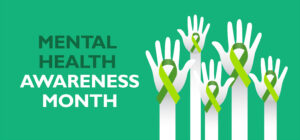
By Nicola Woods
Ensuring employee health and safety that encompasses both physical and mental well-being, is paramount at Hitachi. Our commitment manifests itself in the inclusive work environment we nurture; one that is grounded in safety and trust, values diverse perspectives, and encourages open dialogue. As we observe Mental Health Awareness month, we’re reminded that improving physical and mental well-being is a journey that winds through awareness, compassion, and community. To that end, I took time recently to connect with members of our Mental Health First Aider Employee Resource Group to home-in on the critical areas of the work. Our Mental Health First Aiders are certified through MHFA training programs offered in their respective countries. This dedicated group raises awareness and education to help colleagues better understand and navigate mental health challenges. Joining me for this Q&A session were Gregory Mason, James Wake, Marilyn Knapp, Helen Bonnet and Ngoc Tran from the Hitachi Digital Engineering and AI Solutions Business Unit. The following is an excerpt:
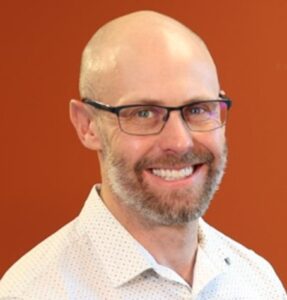
Greg Mason: In 2022, I lost my brother to suicide. Like many who experience such a loss, I often ask myself what signs I missed or what conversations could have made a difference. I’ve channeled these painful reflections into a commitment to support those around me. Joining the MHFA community is part of that commitment—to hold compassionate space for colleagues who might be silently struggling and help nurture a workplace where people feel genuinely seen, understood, and supported.
James Wake: Mental health problems are an increasing concern across diverse communities globally. I believe in the importance of creating a psychologically safe environment where everyone can thrive. I’ve always been interested in supporting others in their mental health journey and helping people through difficult times, so I was delighted to get that chance when I joined Hitachi.
Ngoc Tran: Mental health is still a relatively unfamiliar concept in my community and in my country, Vietnam. Even those who have heard of it may not fully understand its importance or its impact on life and work. I’ve experienced difficult times navigating psychological issues in family relationships. During those moments, what I needed most was someone who could simply listen. I found support in close friends and colleagues who faced similar situations, but many struggled to get through those periods alone. This personal experience motivated me to become an MHFA, to help people like me during their difficult times and be the first line of defense in the struggle for mental wellbeing.

Ngoc Tran: I usually spend at least 30 to 60 minutes a day exercising, doing yoga, running, or walking to stay healthy and reduce stress. I also set aside time daily for hobbies that help me rejuvenate and relax, such as leisure cooking and flower arranging. Lastly, I try to get enough sleep to stay alert and energized for the next day.
Marilyn Knapp: I know what self-care should look like, and honestly even though I’ve had the training, sometimes I don’t follow my own advice — which is natural and very easy to do! That’s the thing about mental health, each day is different, and depending on what’s going on around you, it can affect you. When I’m really looking after myself, I walk a lot, listen to podcasts, read, exercise, and spend time with my family.
Greg Mason: Given my family’s history with depression, I actively prioritize my mental health. Over time, I’ve developed strong body awareness and can quickly notice early signs of depression or anxiety creeping in. Ensuring sufficient sleep is foundational; even a short nap can reset my perspective. Exercise, especially running, has always been therapeutic for me and even a brief walk sometimes shifts my mood profoundly. I also practice Zen mindfulness, including regular meditation, which helps quiet anxious thoughts and brings clarity and compassion when I need it most. These practices keep me consistently balanced and resilient.”
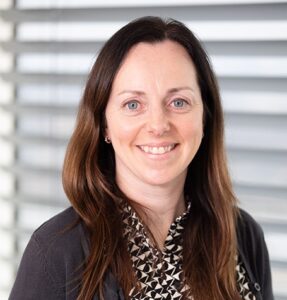
Greg Mason: Work can evoke intense emotions, stress, frustration, isolation—especially in remote global teams. Considering how much of our lives we spend working, prioritizing mental wellness in the workplace becomes essential. Yet stigma persists around openly discussing mental health. Normalizing these conversations at work helps dismantle that stigma. When we talk openly, we signal it’s okay not to feel okay, and it’s completely acceptable to seek support, which is critical. Fostering trust is key—when people feel safe to be open without fear of judgment, we build more resilient, connected teams.
Ngoc Tran: Some people may find it hard to open up about personal issues at work. But if it’s someone they trust, like an MHFA, they’ll feel more secure, knowing their issues and information are kept confidential. This trust encourages people to seek help proactively, boosts their wellbeing, performance, and job satisfaction, while fostering a healthier, supportive workplace culture. But it’s important that we guide people toward professional help when the situation calls for it.
Helen Bonnet: Talking and sharing problems helps break down barriers. It shows people they’re not alone and can lead to earlier recognition and treatment, which can make a real difference.
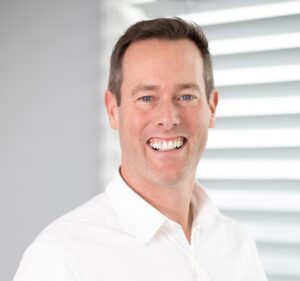
James Wake: Our MHFA community is committed to creating a supportive network and spreading awareness to help colleagues look out for one another. We host monthly global sessions on self-care and other mental wellness topics.
Marilyn Knapp: As an organization, we’re heading in the right direction. In the last two years, we’ve made good progress in recruiting MHFAs globally, organizing monthly talks, and providing staff support as needed. We’re also seeing more top-down support from senior leaders through internal meetings and town halls, which helps tackle the stigma around seeking mental health support.
Greg Mason: I’m proud of my team’s efforts within Global Talent Enablement to champion mental health at Hitachi. We recently launched the “Caring for Employee Mental Health” course, integrated into our Sakura People Manager Program. Leveraging emotional intelligence as its framework, this training equips managers to nurture their own mental wellness and foster healthier team dynamics. The course aligns seamlessly with our broader coaching culture goals. Additionally, we’re looking at developing parallel mental health training specifically for individual contributors. This comprehensive approach reinforces our commitment to creating a workplace where everyone feels valued and supported.
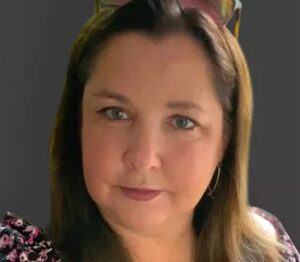
_________________
Mental Health Awareness Month is for reflection and action.
Our global health and wellbeing calendar here at Hitachi is already packed with impactful sessions in the months ahead — from conversations on loneliness, emotional intelligence, and parenting, to wellness habits like mindfulness, rest, and screen-time balance. These aren’t one-off efforts — they’re part of a sustained commitment to creating a healthier, more inclusive culture.
Nicola Woods is Senior Director, Employee Engagement & Experience, Hitachi Digital.